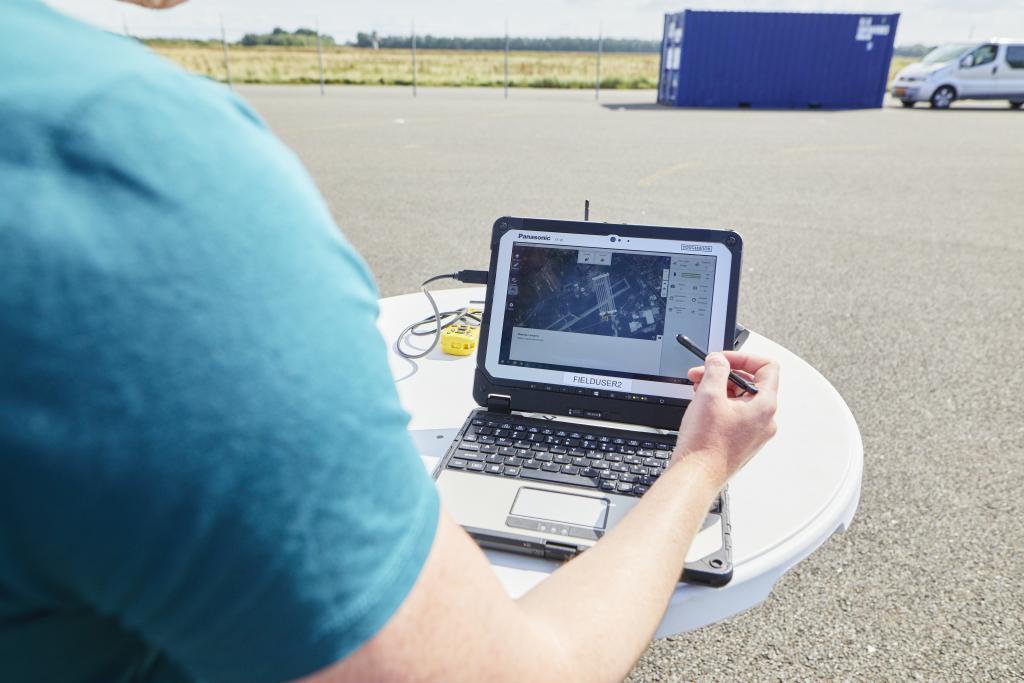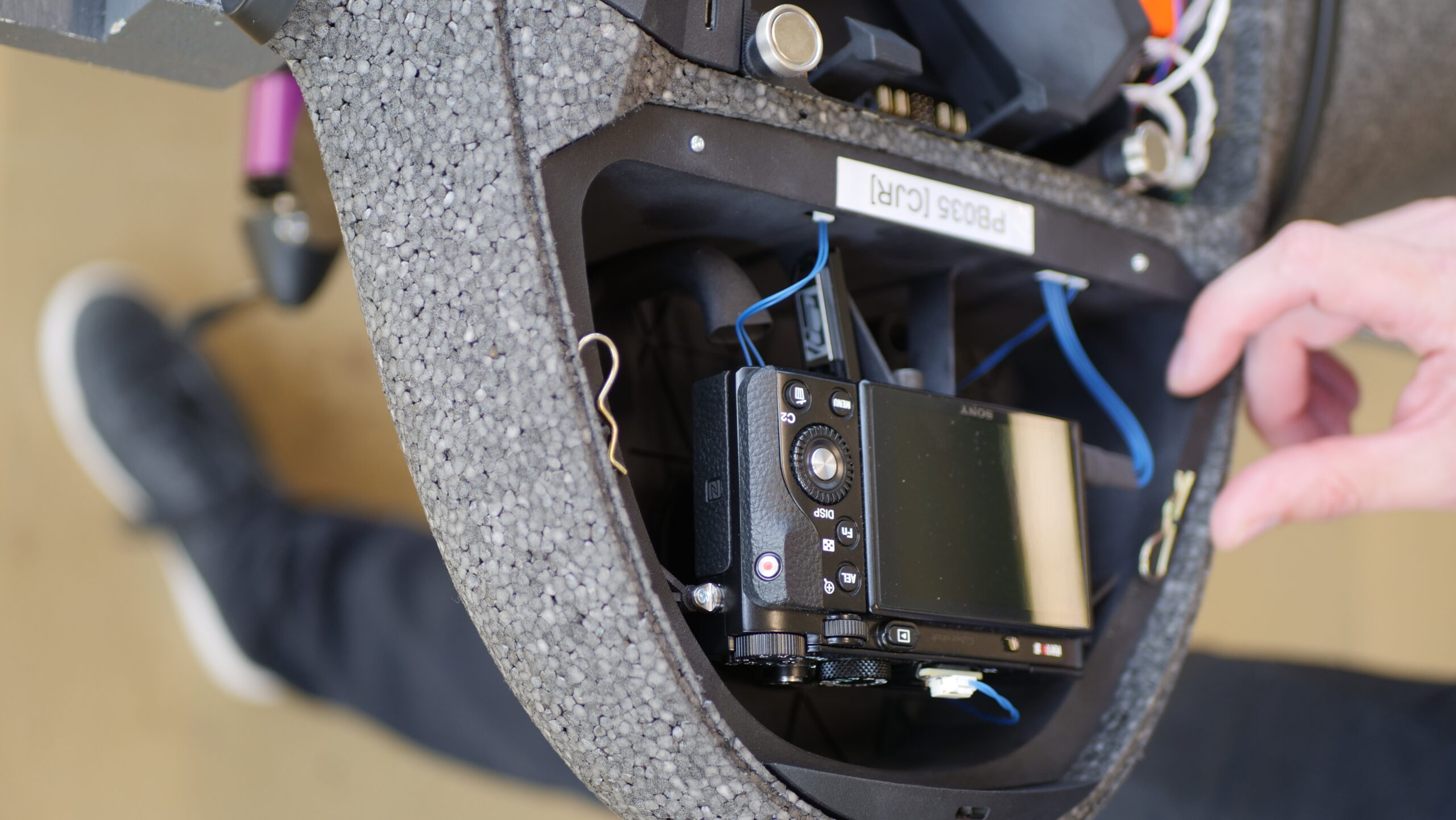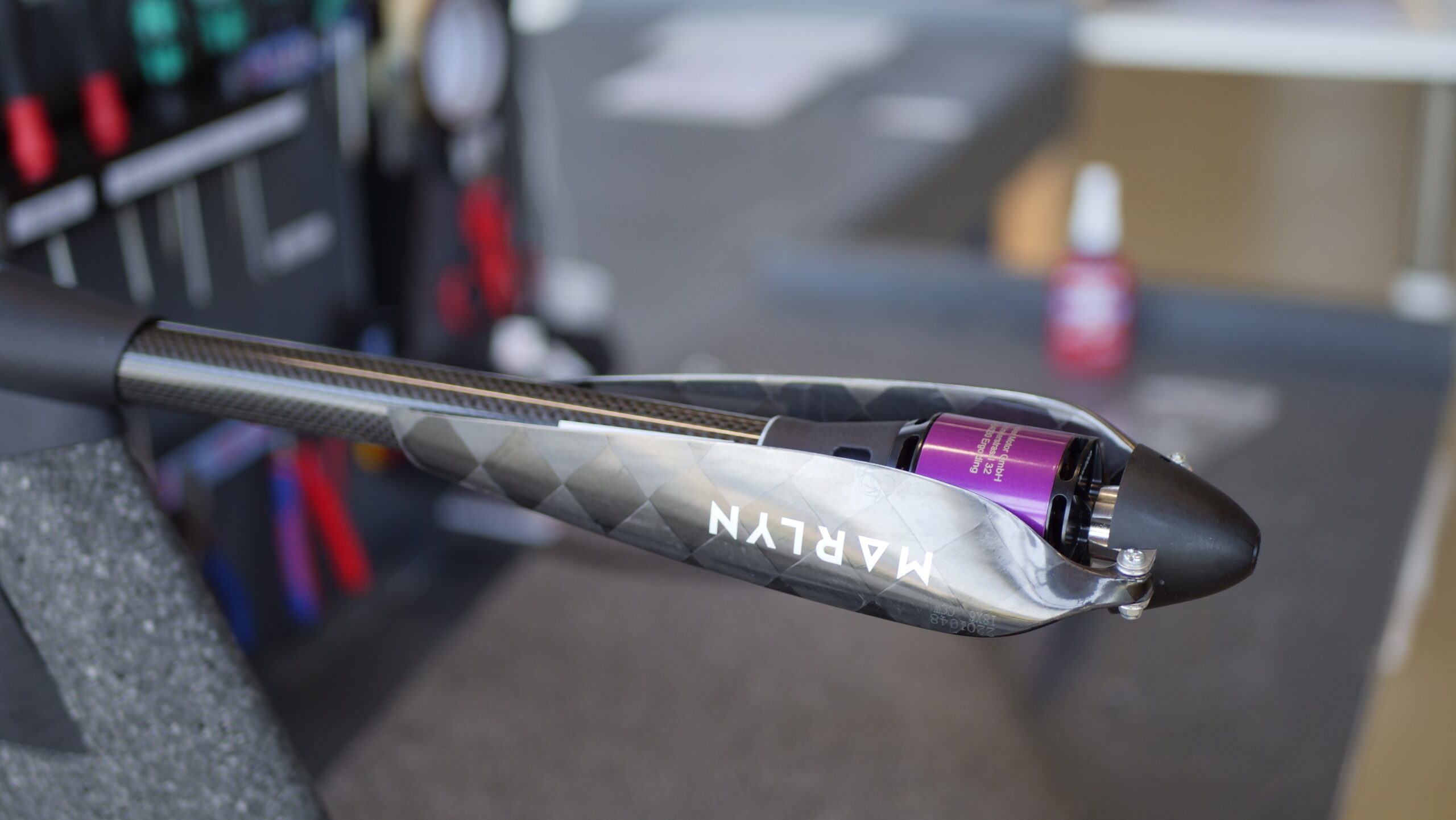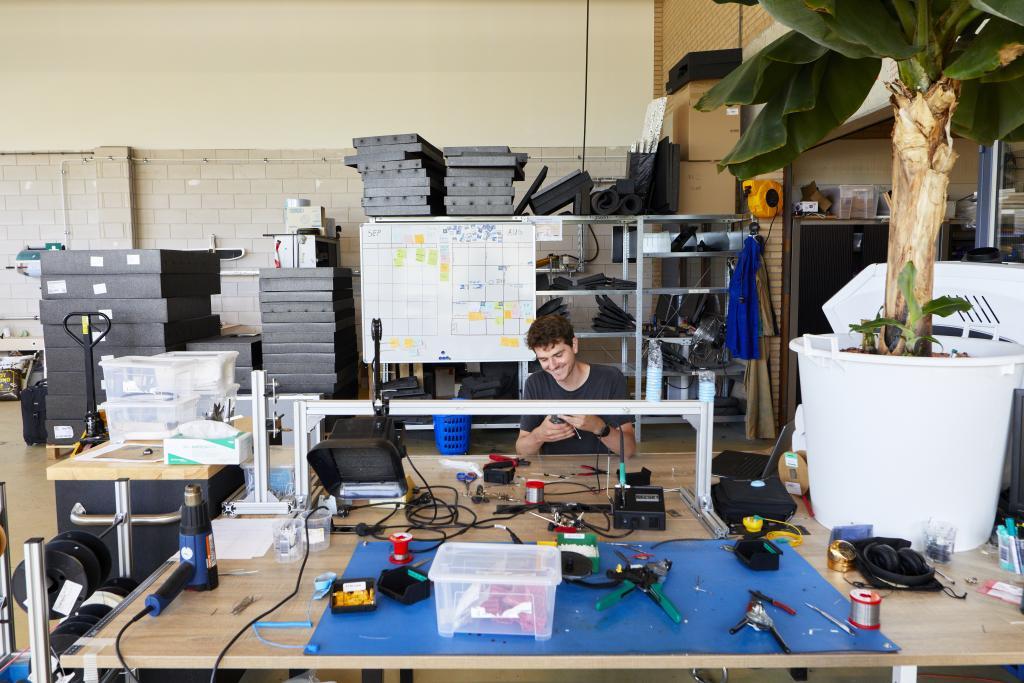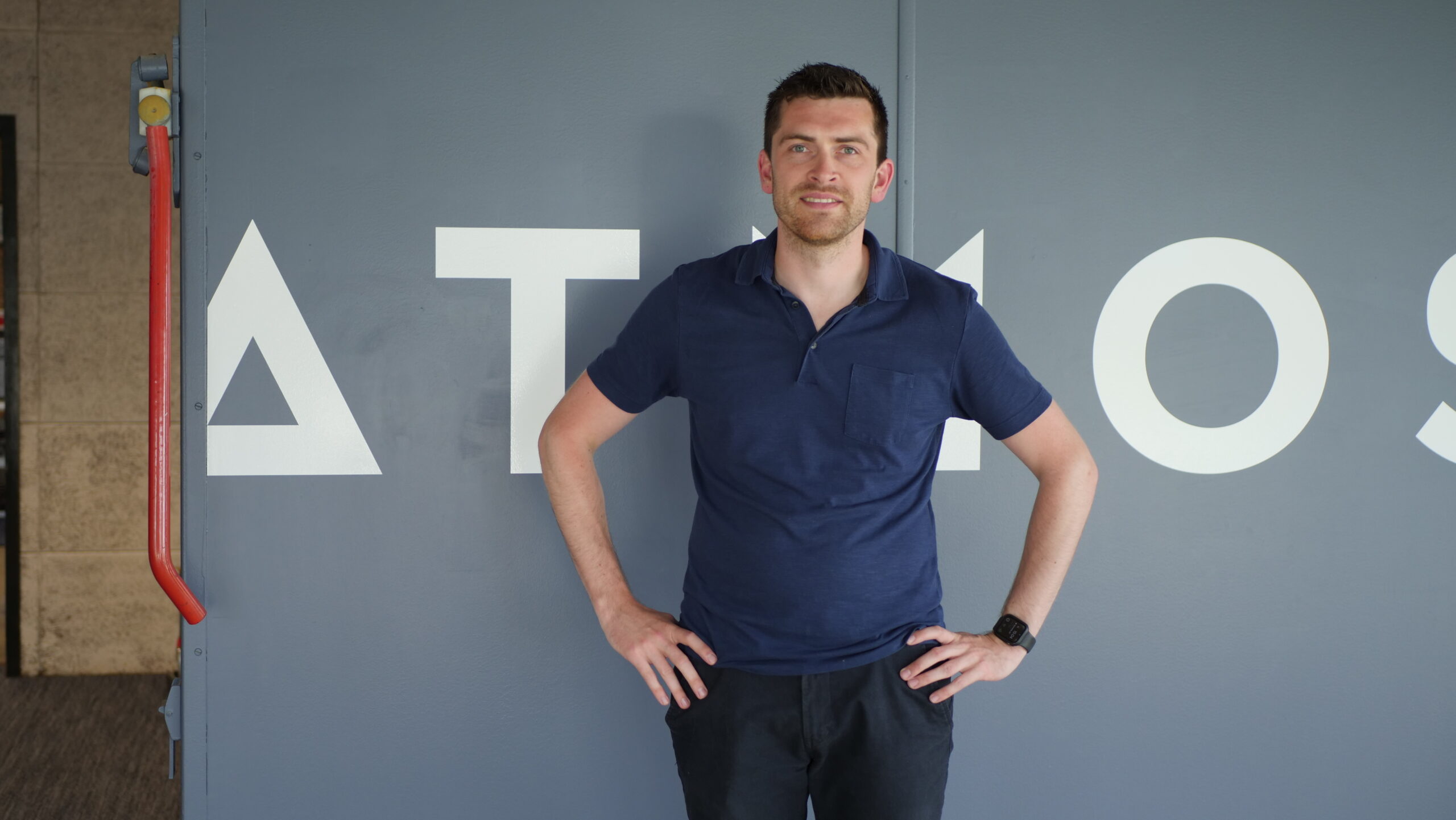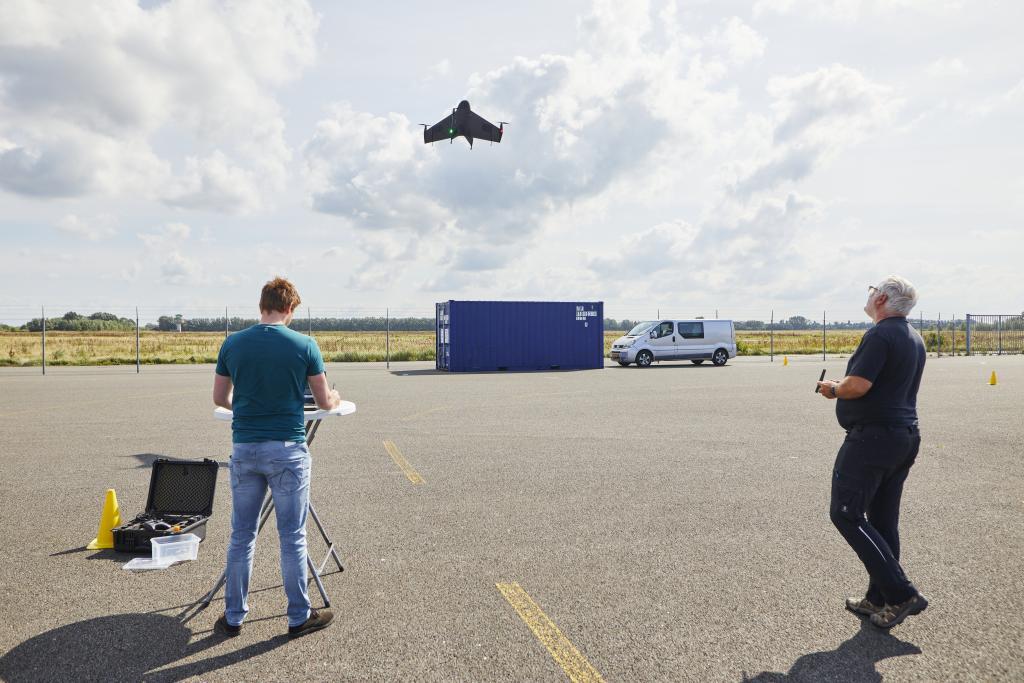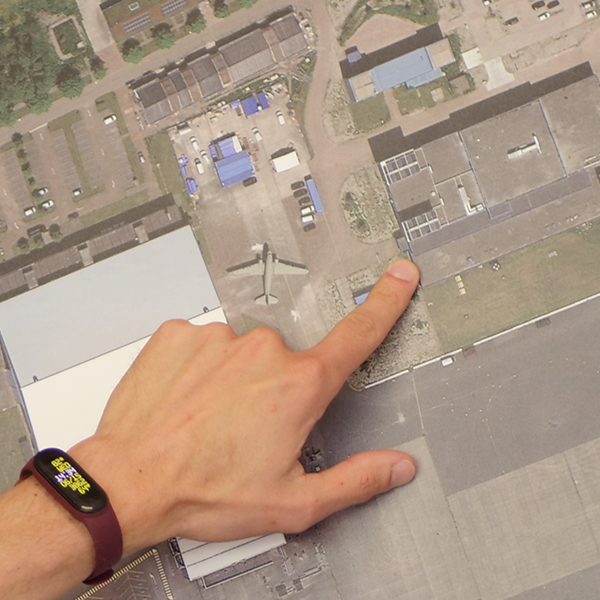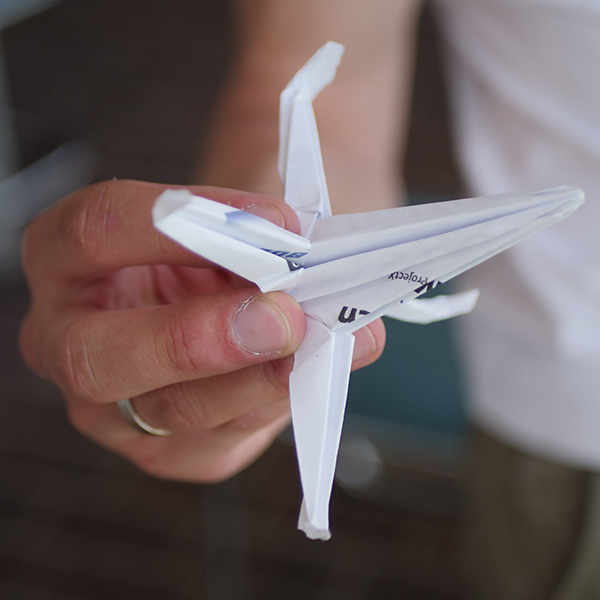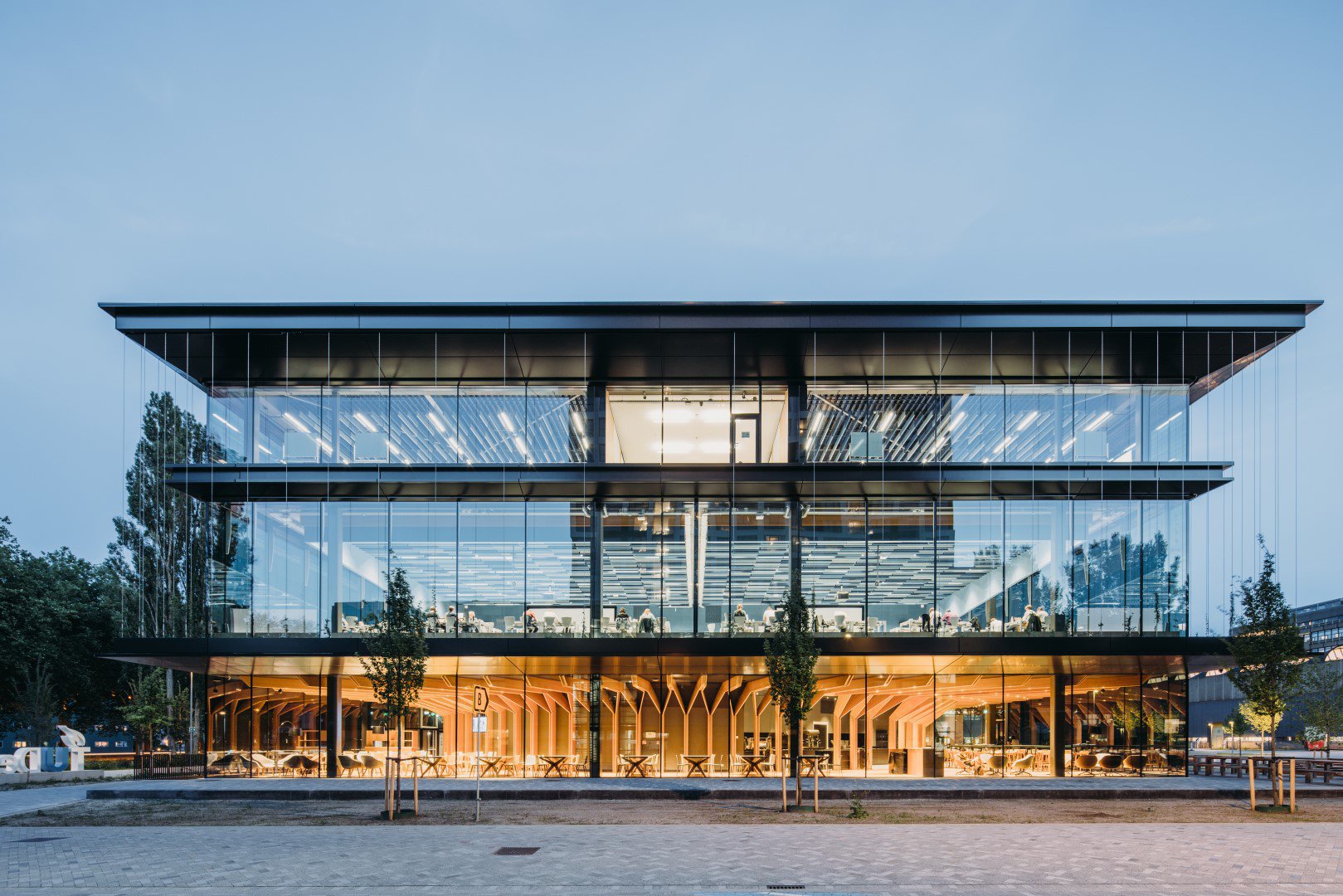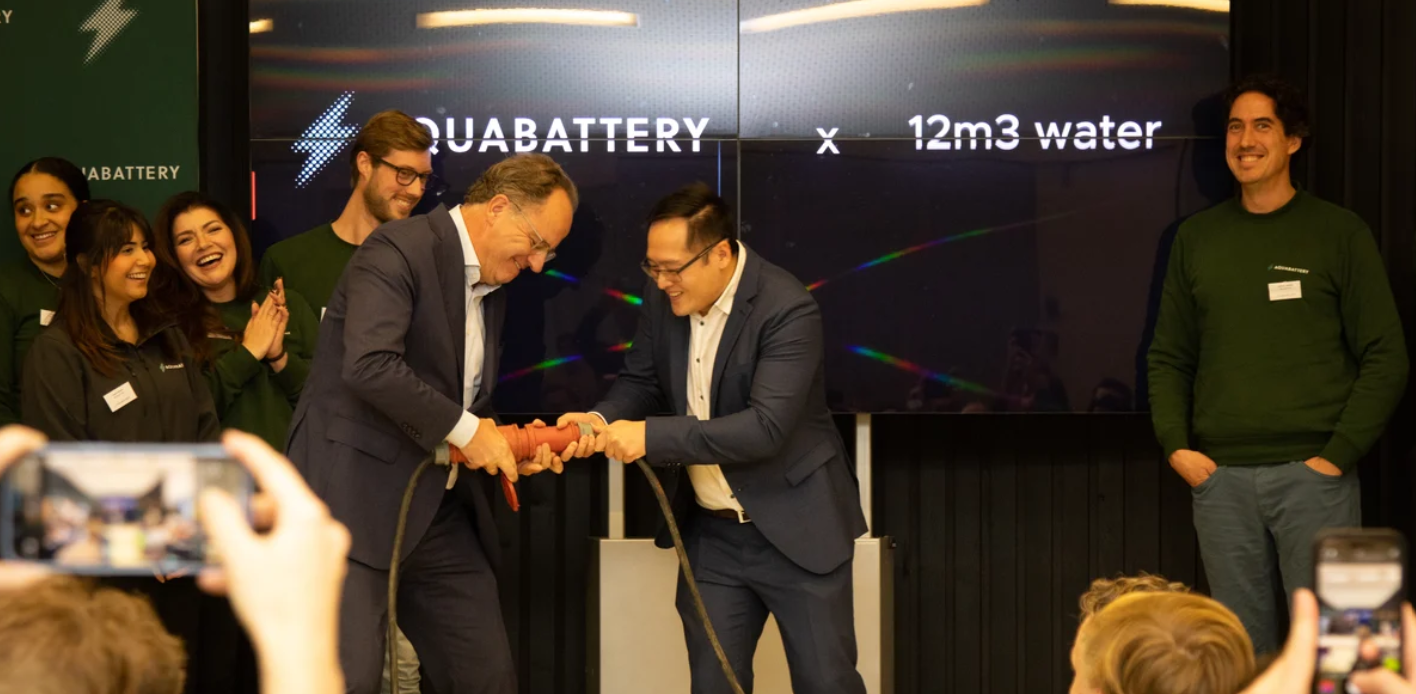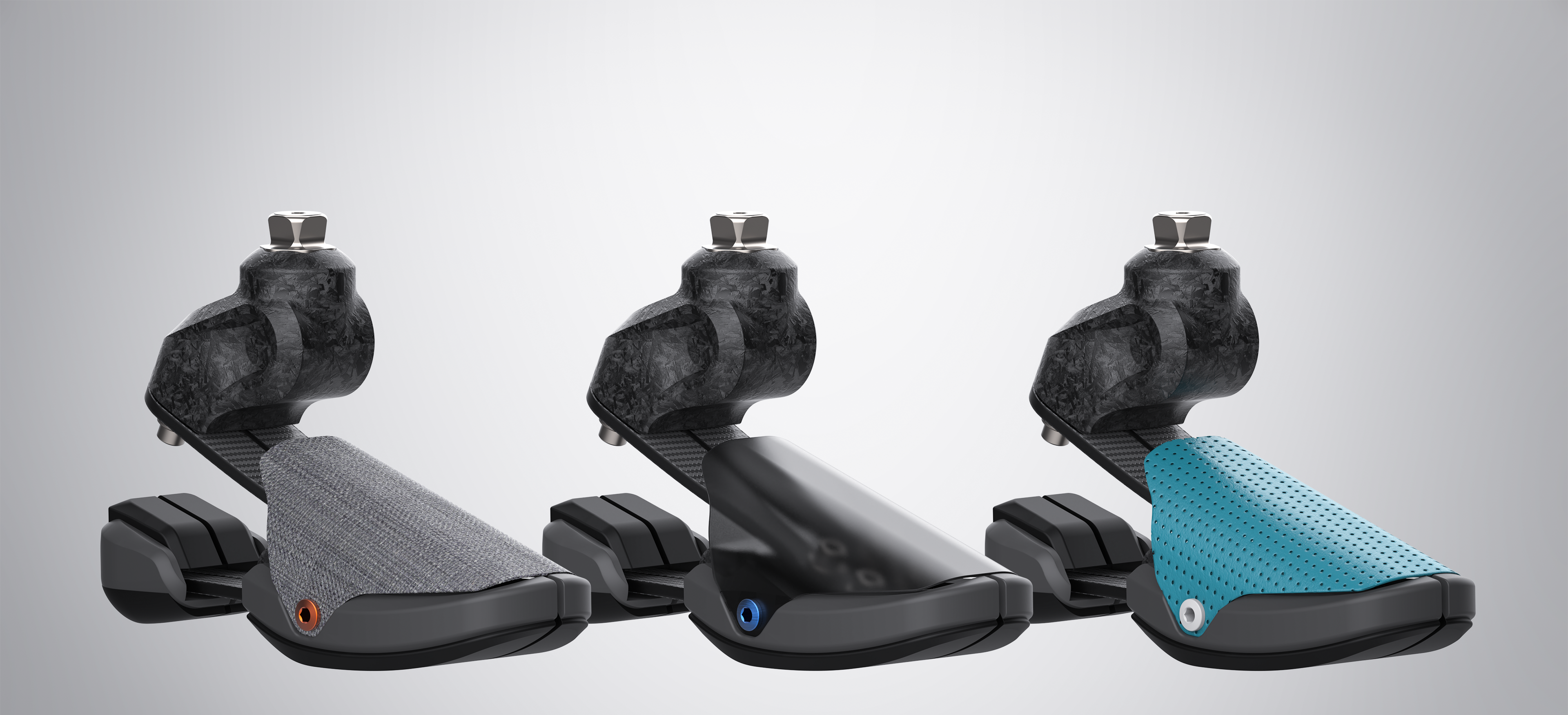Valkenburg military airbase used to be the setting for large-scale military equipment. It is where specialists from the Naval Aviation Service worked on Orion surveillance aircraft. The arrival of Unmanned Valley following the closure of the airfield in 2006 breathed new life into the site. The unique location with an indoor drone centre, research facilities and plenty of space for extensive testing has attracted a wide range of innovative start-ups. One of those is Atmos, a Delft-based scale-up which is specialised in the design and production of drones that can be used for the professional mapping of huge areas.
In the spacious Atmos workshop CEO Ruud Knoops talks about humble beginnings. It all started around ten years ago when a group of four students from the Aviation and Aerospace Engineering faculty took part in a prestigious competition organised by the American Defense Advanced Research Projects Agency (DARPA). “The aim of the competition was to develop a drone which could take off from a small, compact location, inspect something from the air and then fly back to the take-off location”, Ruud Knoops explains. Of the 150 participating universities, the team from Delft and 11 other teams were invited to present a prototype. The students from Delft ended in third place. According to Ruud Knoops this fantastic result was a tipping point for the students. “We all decided that the future looked very promising. We immediately started discussions with YES!Delft where we participated in a kind of pressure cooker discussion. That helped us focus on the market we were going to target, on the issues our future customers are facing and on how we were going to resolve them with our product.”
The impact of climate change
Atmos focuses on companies which are literally changing the physical world, such as construction and mining companies. As Knoops explains, “One example is a company like Van Oord which is involved in infrastructure. Although our clients also include government bodies. We’re currently collaborating with a Czech university on a project to measure the impact of climate change on national parks. And in Ireland we’re using our drones to monitor crop growth and minimise nitrogen usage. Those insights enable us to make statements about the optimal time to harvest and what the yield is going to be.”
“This place is one of a kind. We fly our drones at least three to four times a day”
Ruud Knoops
CEO & Co-founder
The company soon became too big for YES!Delft and Atmos regularly visited Unmanned Valley to carry out test flights. The decision to set up operations at the former airbase was therefore an easy one. “There is more than enough space for us. We were the second party to sign up. Of course, it took a while for things to get going. Initially it was mainly larger scale-ups and companies that decided to set up operations here. Now the mix also includes many smaller start-ups. At YES!Delft it was easy to drop in on other scale-ups that were already slightly ahead of us in order to exchange know-how. It feels good that it is now our turn to give something back to the growing community here.”
150 football fields of data
In a short space of time Atmos has managed to make a name for itself in a variety of fields. In contrast to the competition the Atmos drone can still fly in strong winds. As Knoops is proud to explain, “Our drone can even be used in wind speeds of up to 45 km/h (+/- force 6). In addition, we combine helicopter and aircraft mode. Our Vertical Takeoff and Landing (VTOL) drone takes off vertically like a helicopter but can then tilt so that it can cover a huge area in aircraft mode. If a client wants a map which is accurate to the last centimetre, our drone can cover an area of up to 150 football fields. Every centimetre will then have data about the location and height of that specific point.”
Knoops is keen to emphasise the importance of the facilities at Unmanned Valley. “This site is one of a kind. You can find office space anywhere. But the test facilities and opportunities here are quite unique. We fly our drones at least three to four times a day and it’s rare to find such a large open space in the middle of the Randstad conurbation. Foreign clients and partners can be at this location from Schiphol Airport and Rotterdam within an hour.” The proximity of TU Delft and Inholland University of Applied Sciences is also important to Atmos. TU Delft is the main supplier of staff, with almost 80% of the team having a background in Delft. “Delft-based students who are interested in drones are keen to join us”, Knoops adds and the company regularly employs internship students from Delft and The Hague.
5G as a game changer
Knoops points out that, after a slightly quieter time during the coronavirus crisis, Unmanned Valley is starting to blossom again as an ecosystem and a place to meet. “The installation of the 5G masts is also enabling us to take new and interesting steps, for example with regard to data capacity. Currently all the raw data is kept in a drone, which you then have to process in a 3D model. 5G makes it possible to send that data live from the drone immediately to a server where it is processed. You can then collect that data at the office and start working on it immediately.”
The drone industry for geo-data is in an early adopter stage and we are still waiting for the big sprint in terms of market potential, Knoops predicts. “This will present huge opportunities. The market we are in with Atmos, with drones which can map out large and complex areas and projects, is one that is expected to be worth €800 million annually in 2030. That’s massive. By constantly developing and testing we can reduce the gap for our customers between the drawing board and the reality in the field.” In order to maintain this upward trajectory Atmos plans to start looking for investors soon. “Expansion into America, creating name recognition and expanding our portfolio are just a few of our targets this year”, Knoops concludes.

